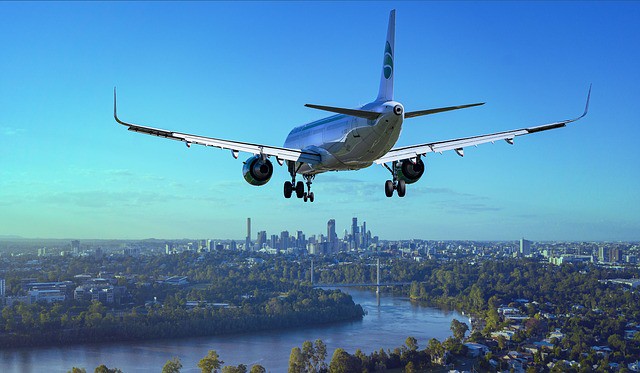What Actually Happens to Our Ears on Airplanes (Explaining Fullness of the Ears)
Most of us have been there. Whether you were on an airplane, taking a ski lift up to your favorite range, or diving to the bottom of a pool, any time our body moves quickly to a higher or lower place, you feel this fullness in your ears.
Ears that feel full during a flight, also called airplane ears, can be the worst. So why do ears feel full when we fly? I’ve got your answer.
What Causes Ear Fullness During a Flight?
Airplane ear happens when the air pressure on one side of your eardrum is different from the other side’s pressure. As you go up in a plane, the air pressure drops because at higher altitudes the air is lighter than air near the surface. That’s how air rises. Your ears may feel full during a flight that is landing or taking off.
You have a little tube in your middle ear (Eustachian tube) that works to balance pressure between the two sides, but with modern transportation, we’re moving faster than this Eustachian tube can keep up. The good news is most of the time within a couple of minutes, the tube can bring in or let out enough air pressure to balance the two sides. But those few minutes can be miserable.
What Are the Symptoms of Airplane Ears?
You can have the fullness in one or both ears and may experience:
- Mild pain or discomfort in the ear
- Feeling like having your ear full of water or air
- Everything around you sounds muffled, and you may not be able to understand people sitting right next to you
Although it is less common, some people may experience worse pain and unbearable pressure to damage the eardrum. You could also experience:
- Vertigo (extreme spinning feeling)
- Tinnitus (ringing in the ears)
- Ear bleeding
- Moderate to severe permanent hearing loss (rare)
Who Is More At Risk?
Babies and small children have smaller Eustachian tubes, so the experience may be worse for them than for adults.
Other factors that can increase your risk of having a more extreme experience include:
- Having a cold
- Sinus infection
- Having allergies, especially if you’re currently experiencing symptoms
- Stopped up nose
- Middle ear infection
- Being asleep, since you can’t take action to ease the pressure
What to Do with Ear Fullness During a Flight
Several tricks can quickly reduce pressure, like:
- Gulping some air, which will make you burp, but that’s less of a concern here
- Sucking on a piece of hard candy (remember, never to give a small child hard candy that can get stuck in their airways)
- Yawn
- Chew gum
- Hold your nose and blow air into your closed mouth — this works best when you’re landing
- Avoid flying when you’re sick or recently had ear surgery
- If stopped up, use a decongestant or allergy medicine before a flight, unless you’re unable for medical reasons or age limits
- Try special earplugs that slowly let air in to avoid over-working the Eustachian tubes
Full ears during a flight are no fun, especially for children and those with any of the above conditions. You should definitely take steps to equalize the pressure as quickly as possible and use preventive measures if you or your child falls into a high-risk category. If you think you may not be hearing as well as you were before the flight, or you have an awful experience with fullness in your ears during a flight, it’s important to get a hearing test. Just reach out to schedule an appointment.



